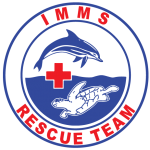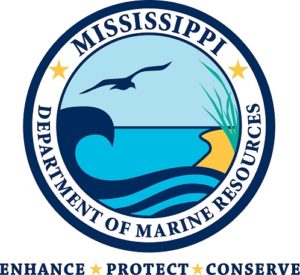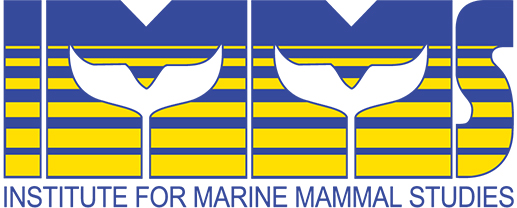2024-Satellite Tagged Sea Turtles
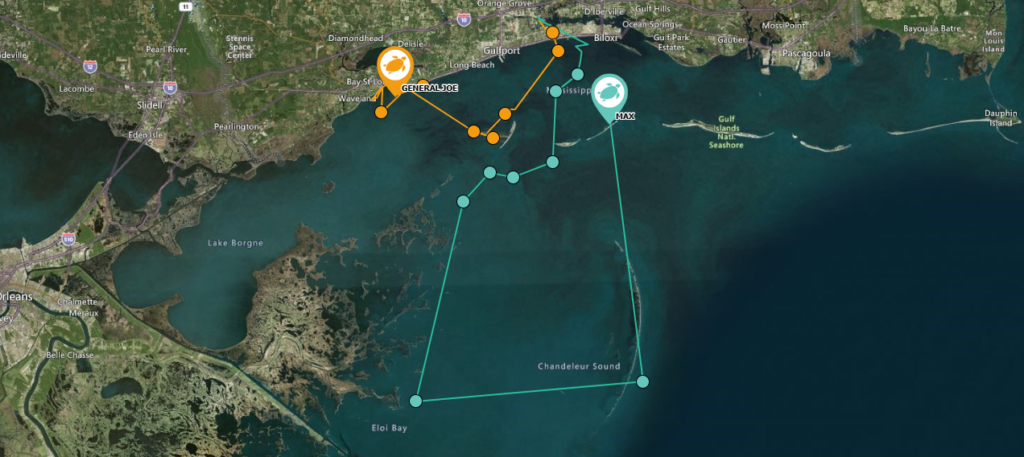
General Joe
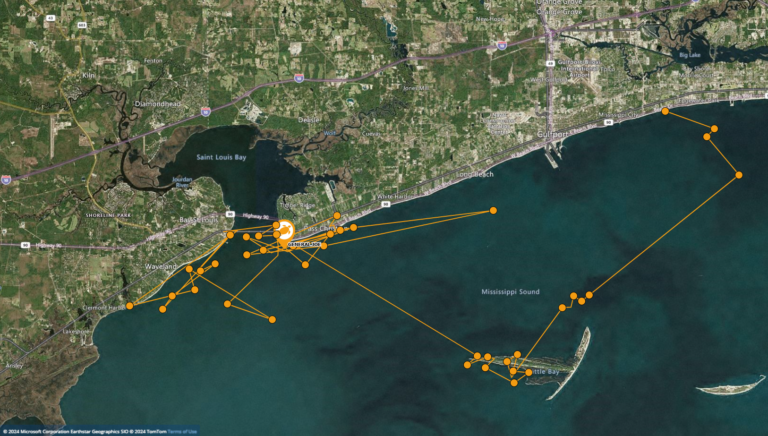
General Joe was caught at Pass Christian Harbor by a local fisherman on June 21, 2024. General Joe had two hooks when he came in, one in the mouth and one in the throat. He was released on October 1, 2024. General Joe was named after General Spraggins, who proudly leads the Mississippi Department of Marine Resources in all of their conservation work.
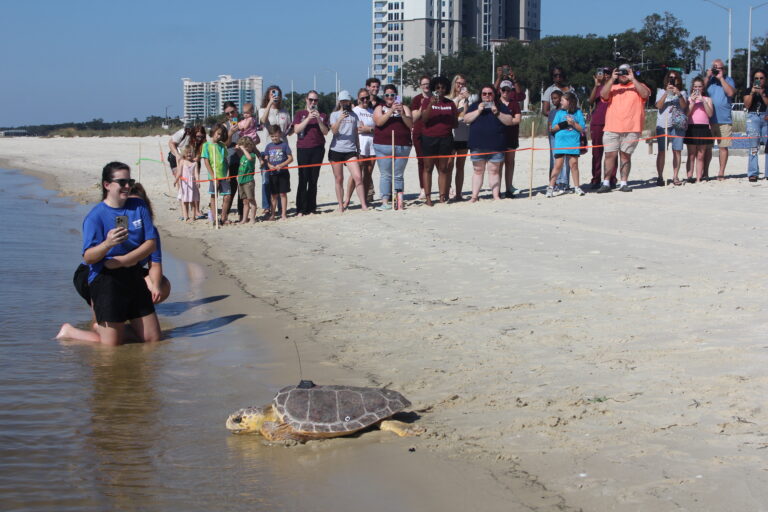
Max
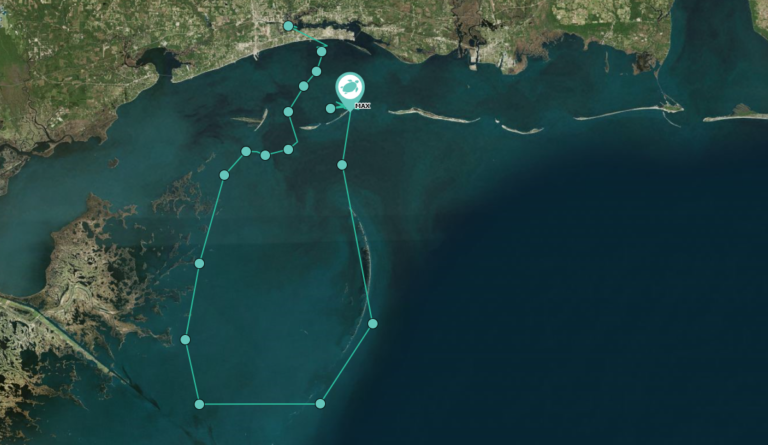
Max was accidentally caught by a recreational fisherman on Moses Pier in Gulfport on October 23, 2023. He required some extended medical care after the hook was removed. Max was quite feisty and kept all of his rehabbers on their toes! His favorite food item while in rehab was shrimp but he also did enjoy hunting live blue crab around his pool. Max was released in March 2024 and was named after Rebecca Powers’ son Max. Rebecca is the 2nd District Harrison County Board of Supervisors President.
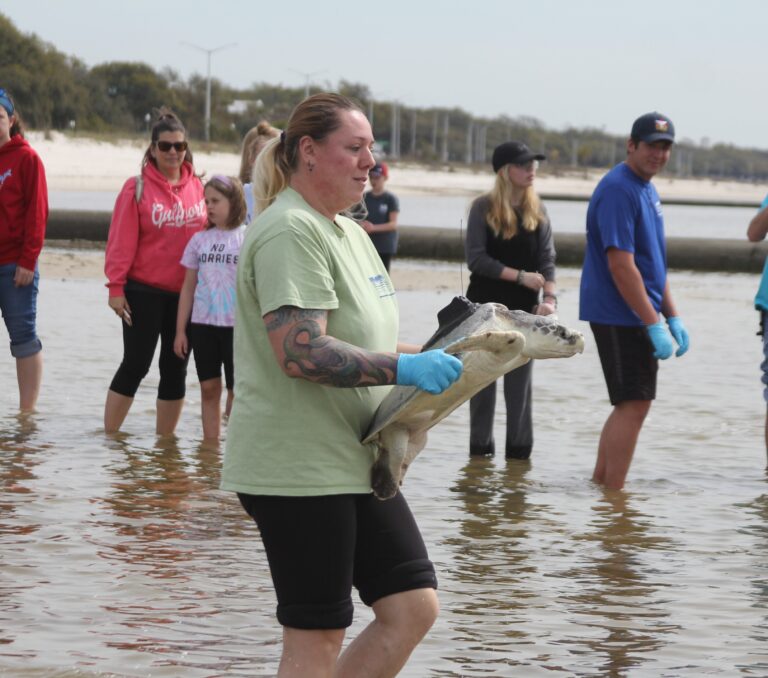
2023-Satellite Tagged Sea Turtles

The Institute for Marine Mammal Studies released two Kemp’s ridley turtles on June 26, 2023 and two more Kemp’s ridley turtles on September 5, 2023 from the beaches of Pass Christian. Two turtles were named in honor of our very supportive First Lady Elee Reeves and Lt. Governor Delbert Hosemann. The sea turtles had a satellite transmitter attached to their shell which will enable us to track the movements of “Elee”, “Delbert”, “Rosie”, and “Valentina” after release. This project is part of an ongoing study conducted by our researchers. These turtles did not come from Mississippi waters. Mid-December 2022, IMMS was approached by our partners at NOAA to assist in rehabilitating sea turtles that had stranded in Massachusetts. These turtles were “cold-stunned”. Since sea turtles are ectothermic, their body temperatures decrease when local water temperatures drop. Most of these sea turtles typically migrate South in the winter time but delays to their migrations causes these events. Every year there are cold stun turtles in the area but these events have increased over the last few years with several hundred turtles stranding on the beaches in and around Cape Cod in 2022!
These sea turtles were first treated at the New England Aquarium’s Sea Turtle Hospital in Quincy, MA. Once warmed and stabilized they were flown to Mississippi by a volunteer organization called Turtles Fly Too. This organization donates flights for endangered species. The turtles arrived in Gulfport on December 14, 2022.
IMMS staff as well as veterinary staff and student volunteers from Mississippi State University’s College for Veterinary Medicine received and processed thirty turtles. These four turtles were part of this group of turtles. Staff and volunteers worked through the late afternoon to do exams, radiographs, bloodwork and ultrasounds on each turtle. Since then the turtles have been in IMMS’s care receiving fluids, antibiotics and daily care. Several specialty veterinarians from MSU-CVM also looked at the turtles’ eyes, radiographs and ultrasounds to provide the best well rounded care for these animals.
Kemp’s ridley sea turtles are native to the Gulf of Mexico and our previously established telemetry data has indicated that the Mississippi Sound serves as a critical foraging area for juvenile turtles of this species. Our researchers are particularly interested in determining where the “non-native” Massachusetts sea turtles will travel after release. Will they attempt to travel back into the Atlantic Ocean where they originally stranded? Or will they stay within the Gulf of Mexico and continue their life cycles here? This study is of significant importance because it is the first of its kind. To date there have been no satellite telemetry studies conducted to determine the movements of these translocated sea turtles.
IMMS would like to give a special thanks the New England Aquarium, Turtles Fly Too, Mississippi State University’s College of Veterinary Medicine, NOAA, USFWS, MDMR, MDEQ, and local City and State partners for working collaboratively to help save this endangered species.
In order to compare our translocated cold-stunned sea turtles’ behavior with native turtles and continue our ongoing study of how these turtles utilize the Mississippi Sound, IMMS released three more juvenile Kemp’s ridleys in the fall. All three turtles were accidentally captured by local fisherman on our piers. After hook removal surgeries and medical treatment, the turtles were released back into Mississippi waters. On October 10, 2023, “Jimmy” and “Tofu” were released and “Spraggins” was released on December 18, 2023. We would like to thank the Mississippi Department of Marine Resources for their collaboration and support of these efforts.
Spraggins
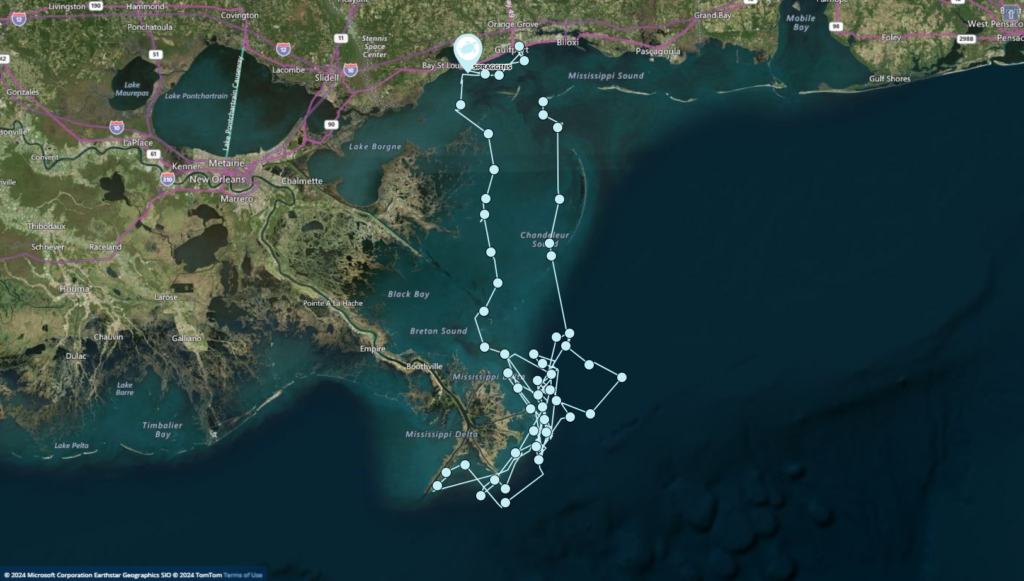
Spraggins was at Moses Pier in Jones Park in Gulfport by a local fisherman on October 30, 2023. Though the hook caught his flipper, IMMS staff were surprised to find another cut hook in the corner of his mouth. He also had signs of another previous hook injury in one of his other flippers. Spraggins is a perfect example of how often our turtles frequent the fishing piers in the area. Spraggins was named after General Spraggins, who proudly leads the Mississippi Department of Marine Resources in all of their conservation work.
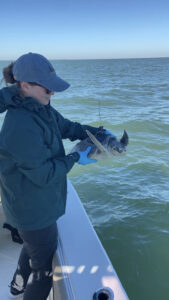
Jimmy
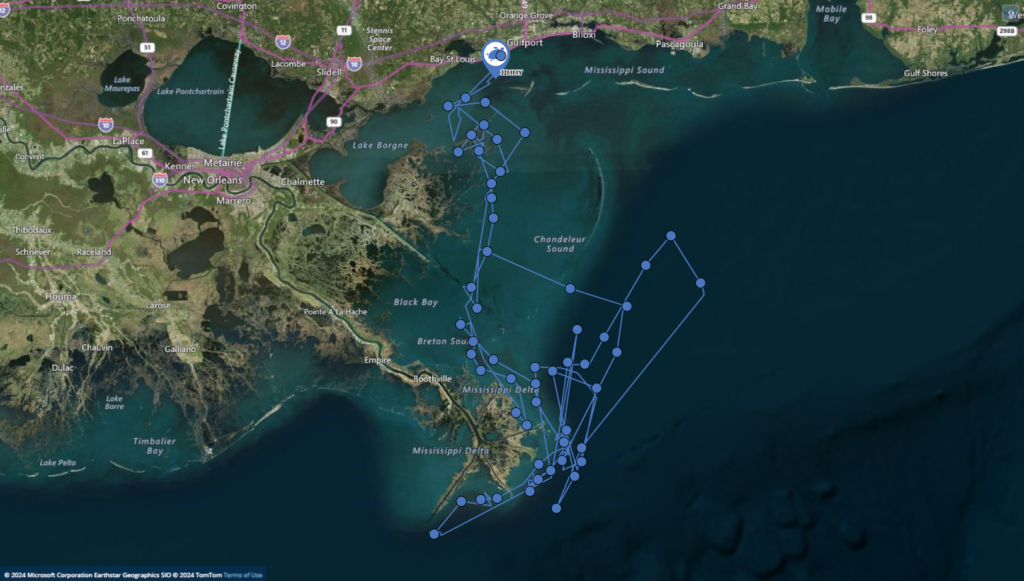
Jimmy was caught in Gulfport Harbor by a local fisherman on June 15, 2023. While in rehabilitation at IMMS Jimmy loved to eat shrimp! After a few months of medical care at IMMS, Tofu was released in Pass Christian on October 10th. He is named after Mayor Jimmy Rafferty of Pass Christian. Mayor Rafferty has been a long time supporter and advocate for the work IMMS does on the Mississippi coast and we were very
excited to name this turtle after him.
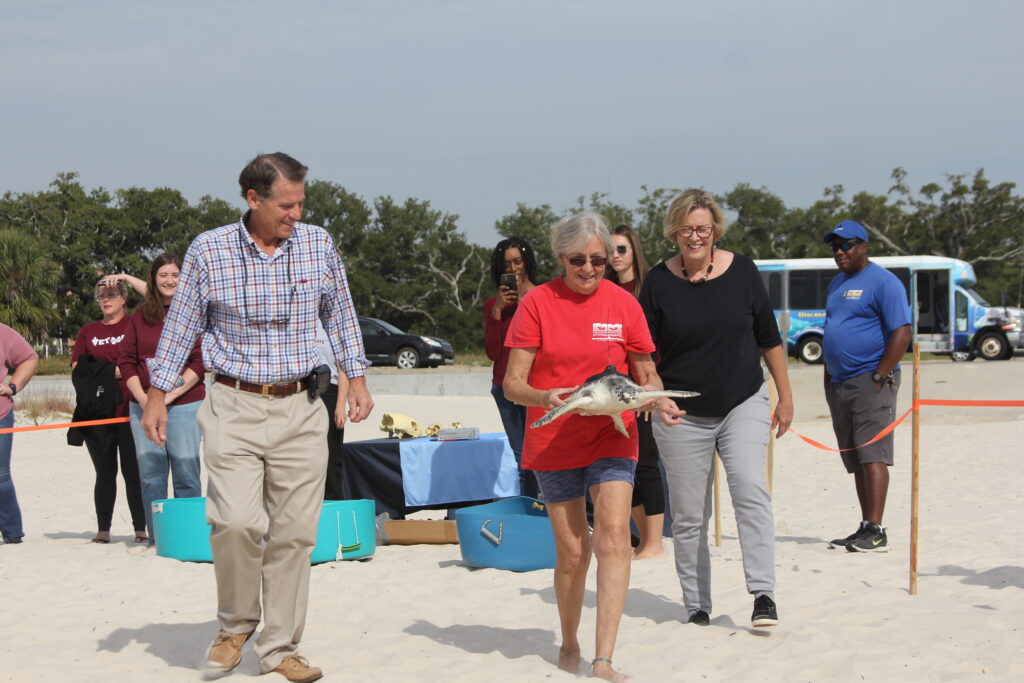
Tofu
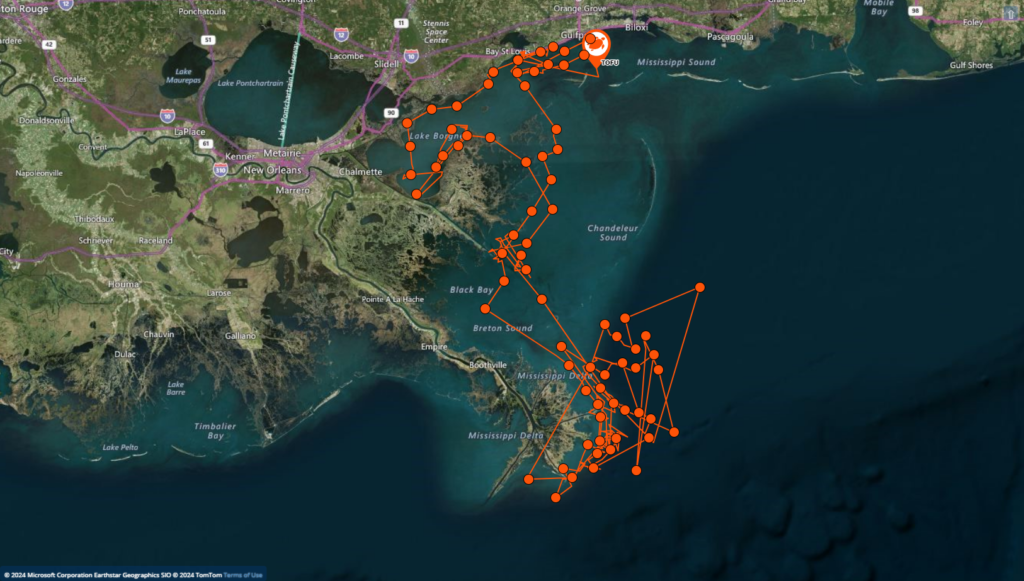
Tofu was caught in Pass Christian Harbor by a local
fisherman on September 13, 2023. Tofu has a healed injury or deformity and is missing his entire left rear flipper. When he arrived, our staff thought he looked familiar. Tofu was a previous patient at IMMS and was
caught by a fisherman on Washington Street Pier in Bay St. Louis on October 9, 2022. He was released in Biloxi on November 7, 2022. We hope he stays far away from our fishing piers in the future!
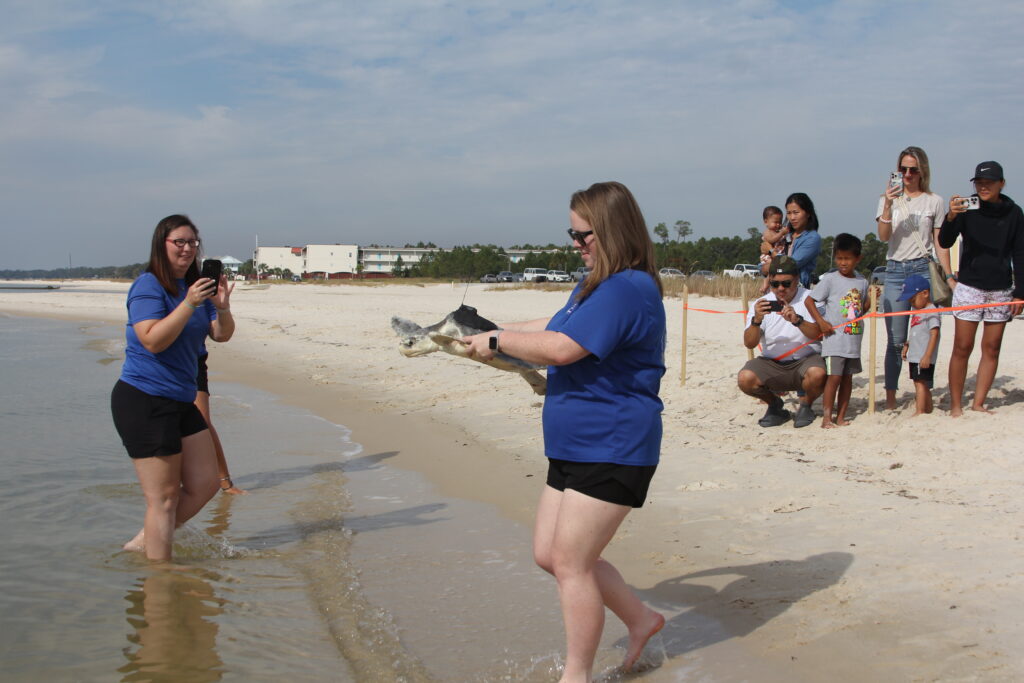
Rosie
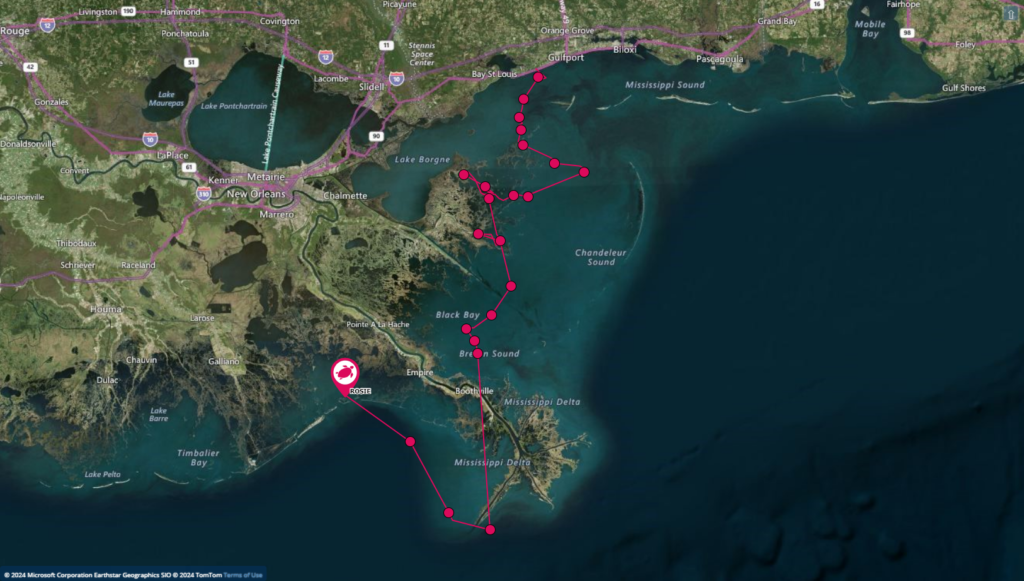
Releasing “Rosie” is Mississippi Department of Environmental Quality representative Ms. Jessica Katzenmeyer. She oversees the IMMS (National Fish and Wildlife Foundation) NFWF project administered by MDEQ.
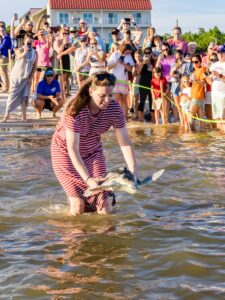
Valentina
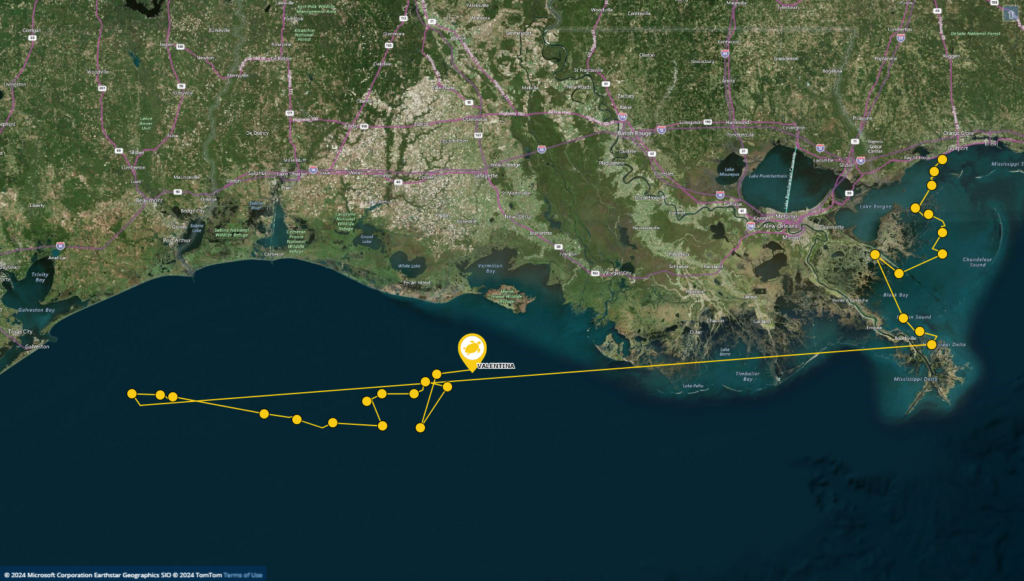
Releasing “Valentina” is Mississippi Department of Environmental Quality representative Dr. Tina Nations. She oversees the IMMS (National Fish and Wildlife Foundation) NFWF project administered by MDEQ.
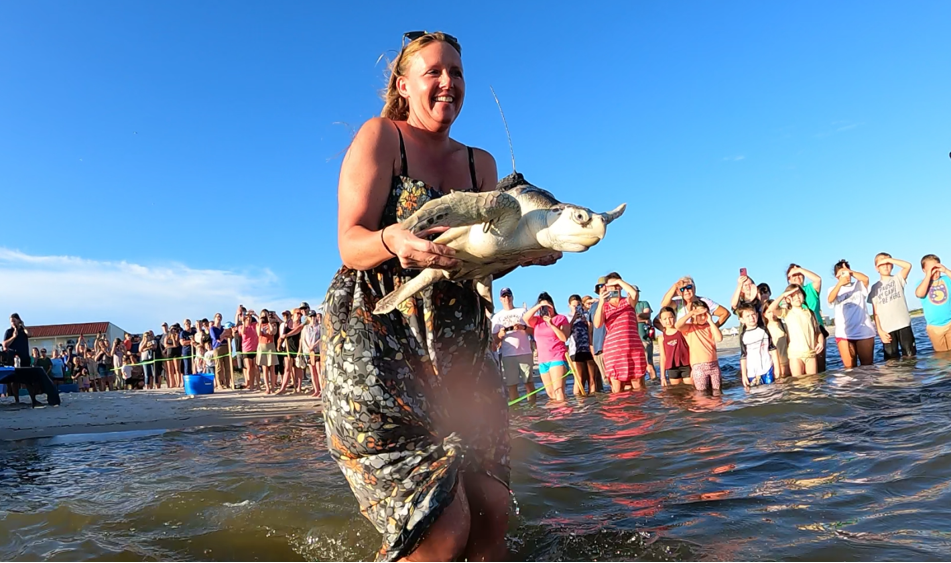
Elee
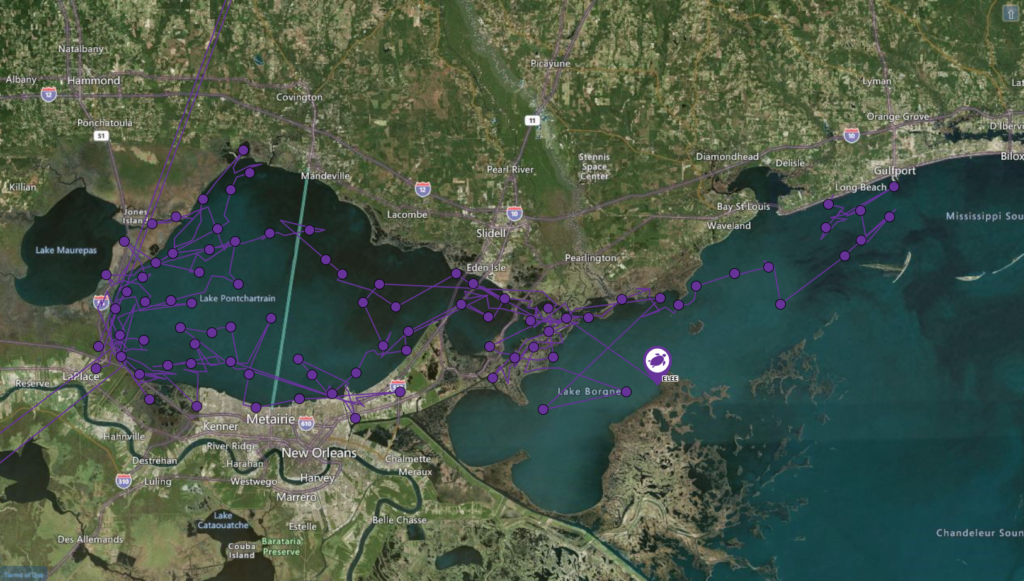
Elee is named after Mississippi’s First Lady, Elee Reeves.
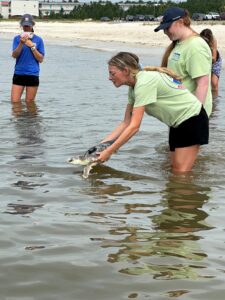
Delbert
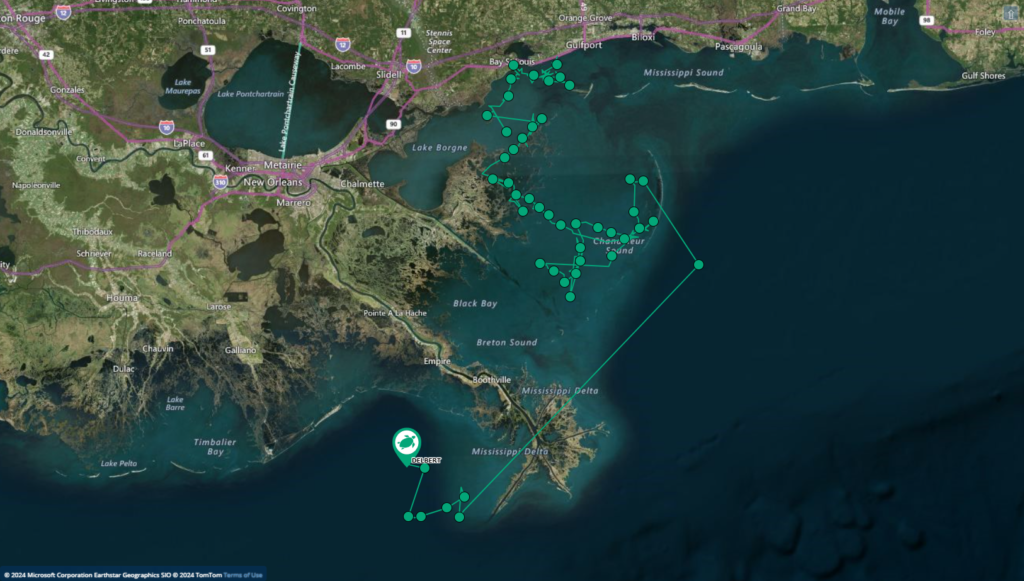
Pictured above is “Delbert” the sea turtle named after Mississippi’s Lt. Governor Delbert Hosemann.
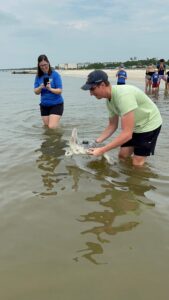
2022-Satellite Tagged Sea Turtles "Thane", "Charles", "Tai, and "Trevor Munch"
The Institute for Marine Mammal Studies released three Kemp’s ridley turtles on October 19, 2022 with satellite transmitters attached to their shells. The satellite transmitters will enable us to track the movements of “Thane”, “Charles”, “Tai”, and “Trevor Munch” (who was released on November 7th) after release and is part of an ongoing study conducted by our researchers. These turtles did not come from Mississippi waters. Mid-November 2021, IMMS was approached by our partners at NOAA to assist in rehabilitating sea turtles that had stranded in Massachusetts. These turtles were “cold-stunned”. Since sea turtles are ectothermic, their body temperatures decrease when local water temperatures drop. Most of these sea turtles typically migrate South in the winter time but delays to their migrations causes these events. Every year there are cold stun turtles in the area but these events have increased over the last few years with several hundred turtles stranding on the beaches in and around Cape Cod in 2021!
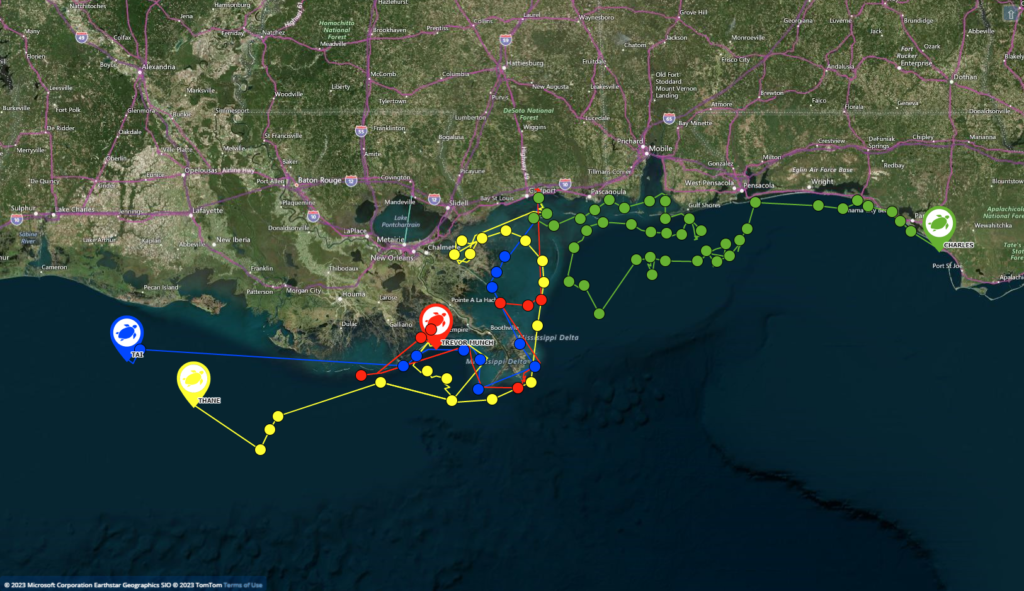
Thane
Charles
Tai
Trevor Munch
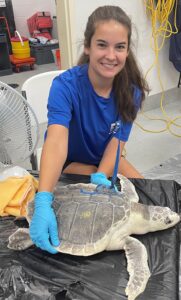
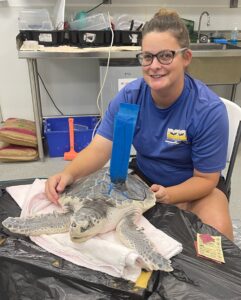
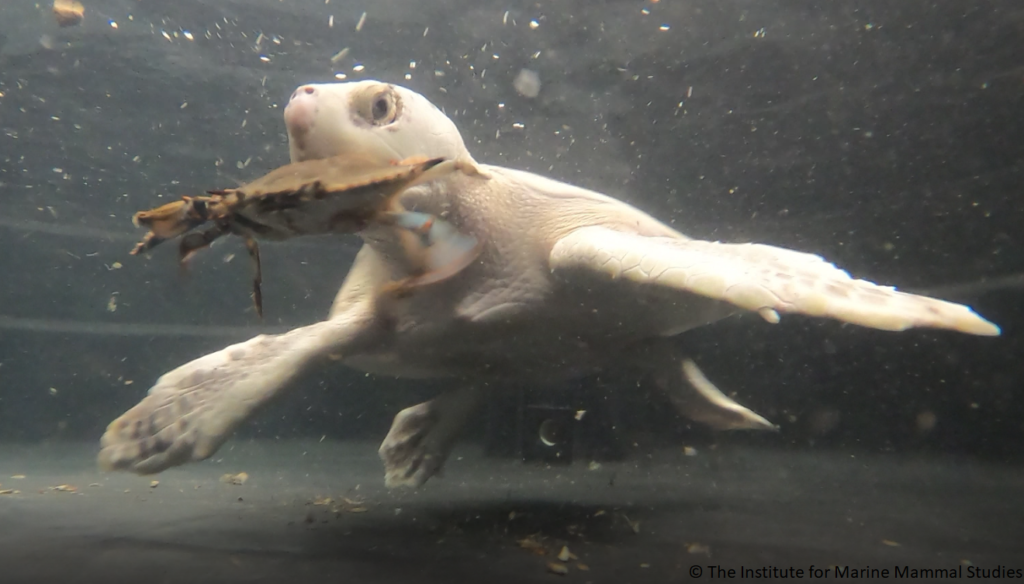

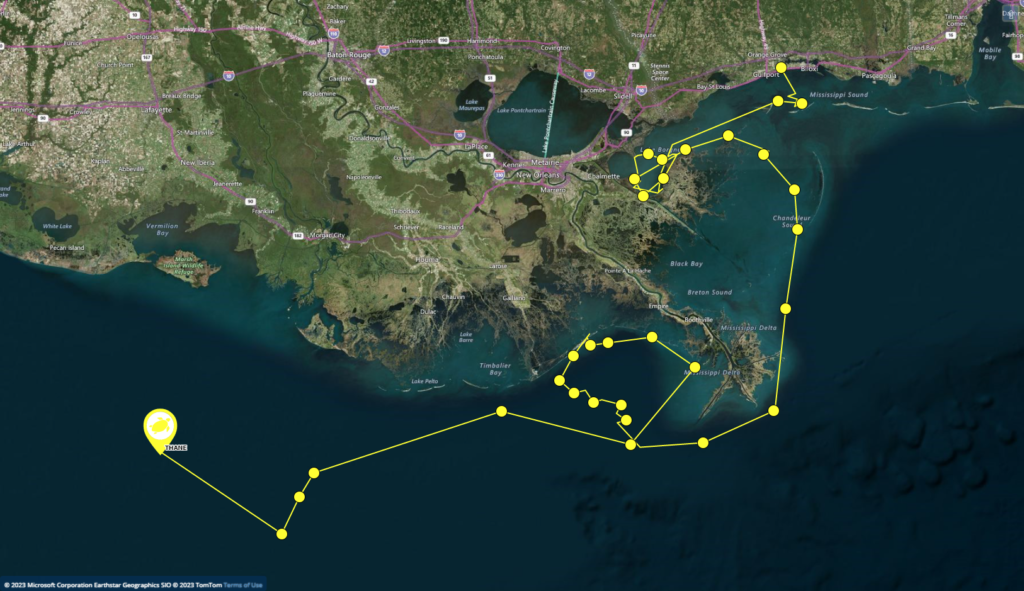
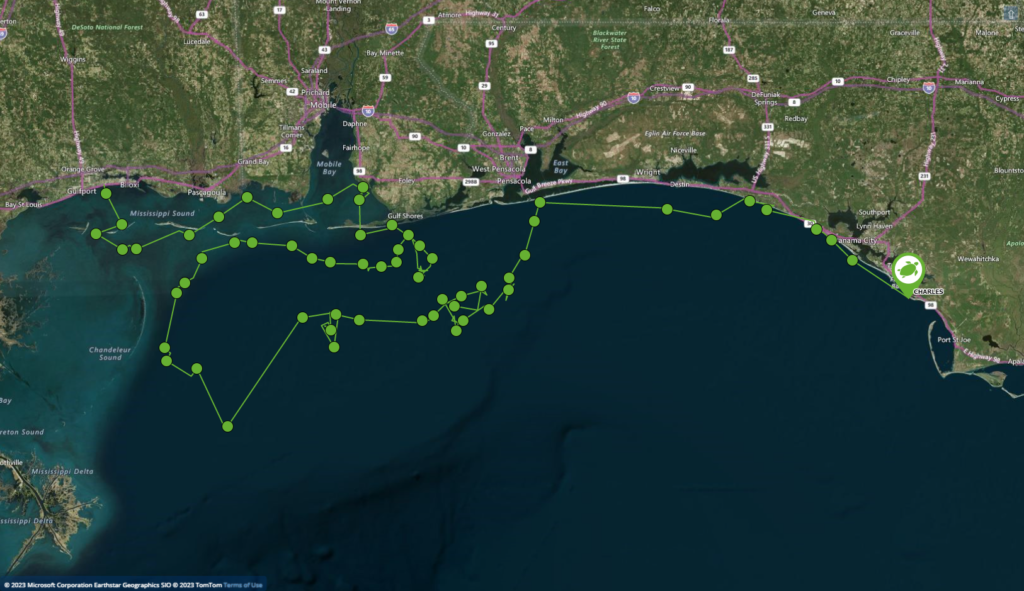
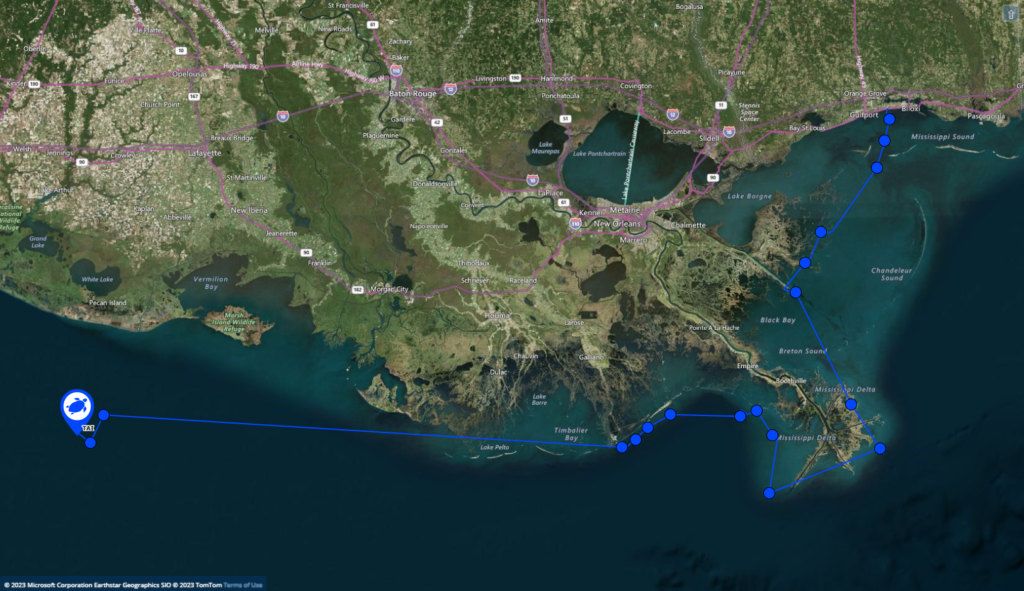
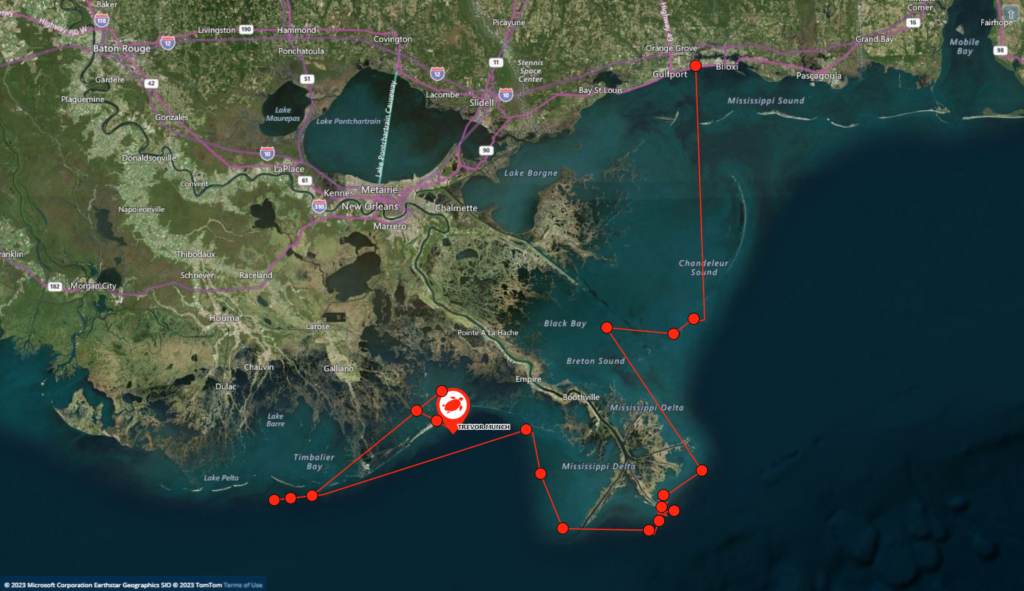
2021-Satellite Tagged Sea Turtle "Winnie 2.0"
On November 3, 2021, The Institute for Marine Mammal Studies in collaboration with Orange Beach Wildlife Center and Management Program successfully released an adult Kemp’s ridley sea turtle with a satellite transmitter in Orange Beach, AL. This turtle was incidentally captured in Orange Beach on October 17th. With coordination between IMMS staff, Orange Beach Wildlife Center and the Alabama Sea Turtle Stranding and Salvage Network Coordinator, the turtle was transported to IMMS for rehabilitation. Fortunately the turtle’s injuries were minor and after receiving care from veterinarians from Mississippi State University’s College of Veterinary Medicine, the turtle was approved for release.
IMMS possesses both state and federal permits to apply satellite transmitters to rehabilitated sea turtles. The Mississippi Sound and adjacent waters are critical habitats for the Kemp’s ridley sea turtle.
Data from this turtle is extremely important as Kemp’s ridleys are the most endangered sea turtle species in the world and tracking the movements of an adult turtle is invaluable to the continued protection of these species.
IMMS would like to thank Orange Beach Wildlife Center for all their efforts. IMMS would additionally like to thank Mississippi Department of Marine Resources (MDMR) for providing the satellite transmitter.
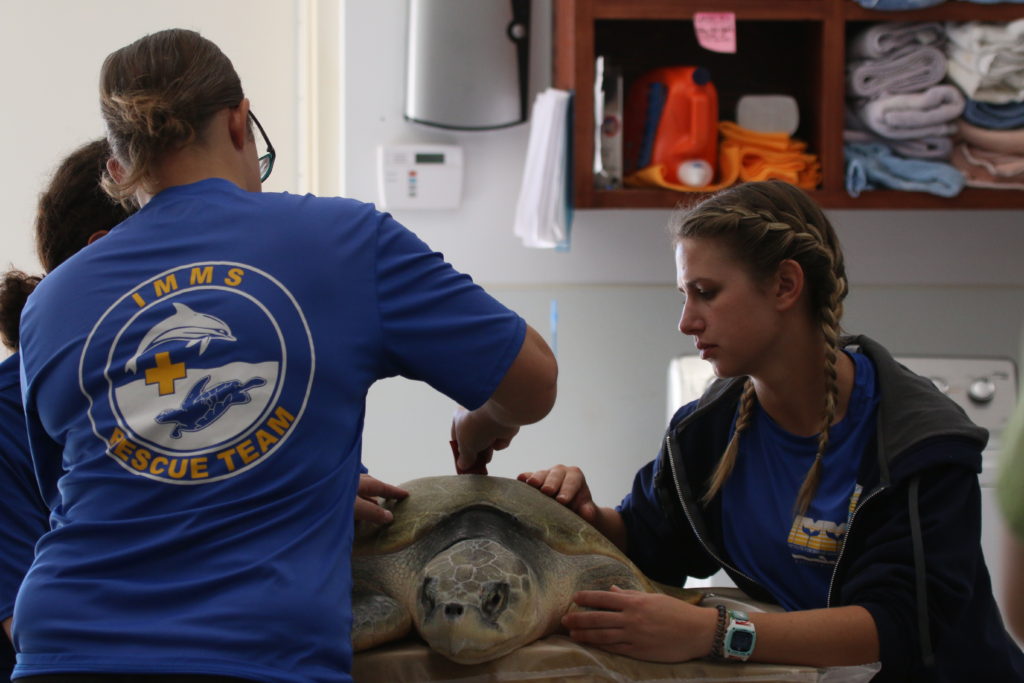
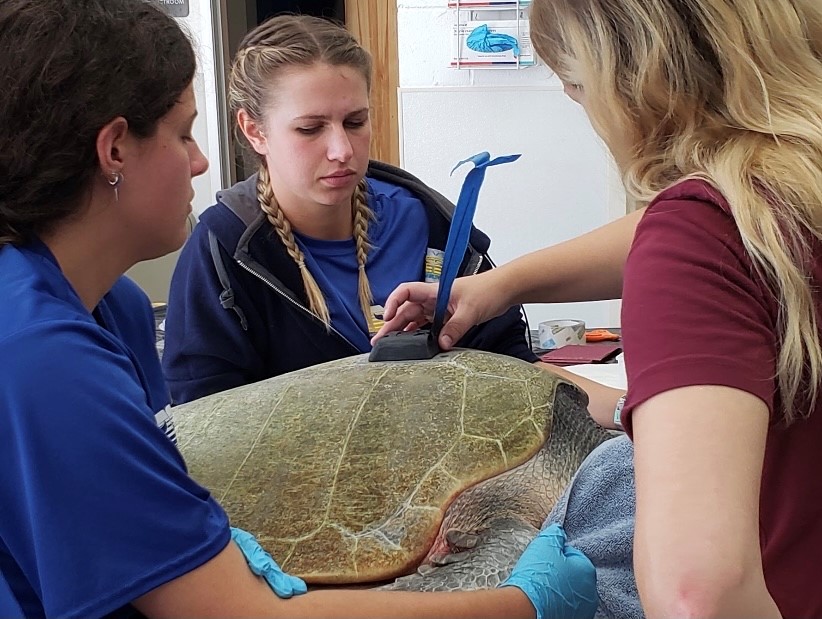
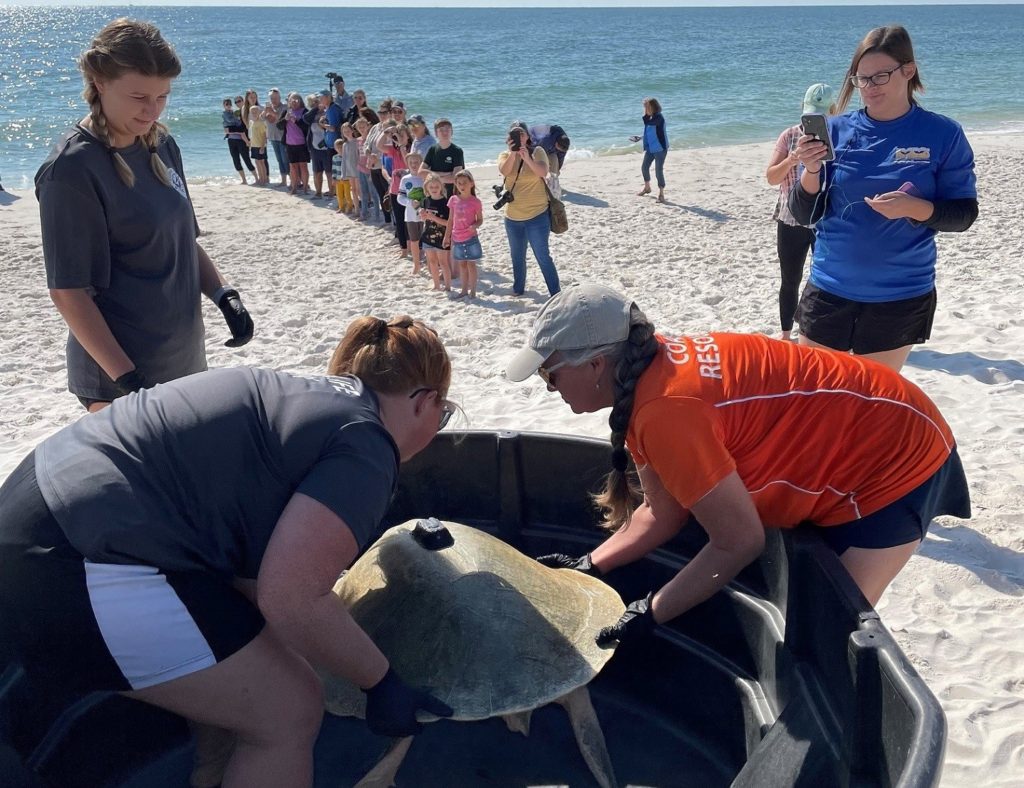
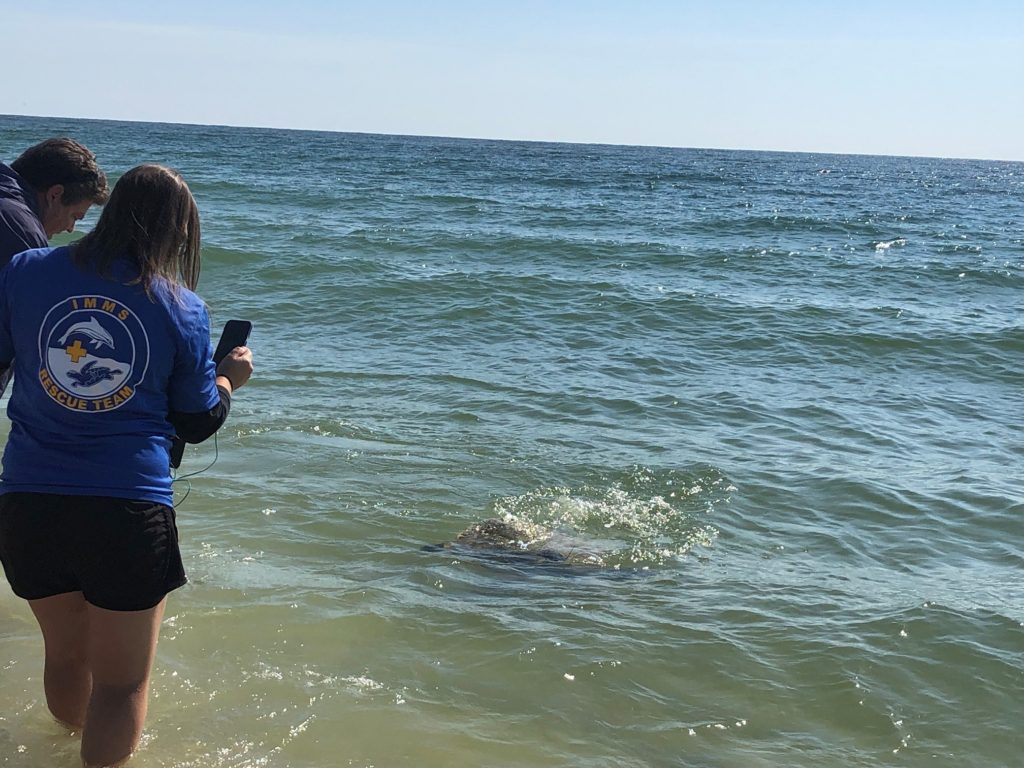
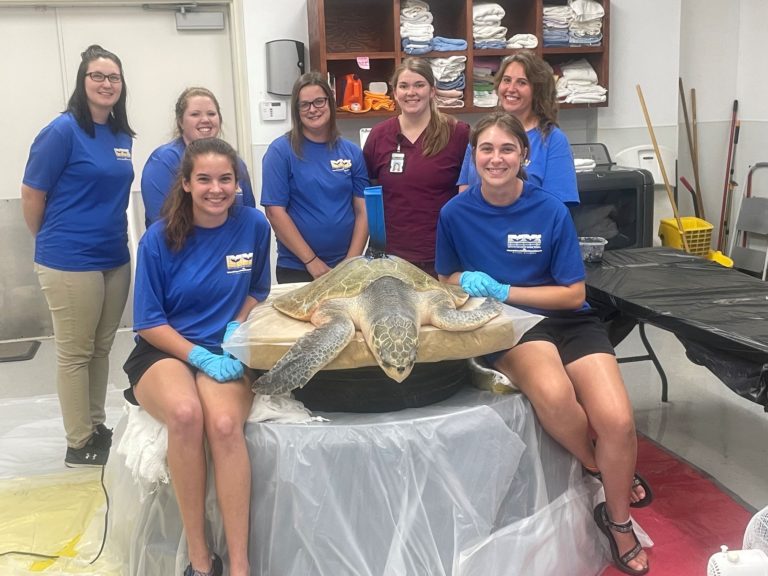
2020-Track of MDMR and IMMS Satellite Tagged Sea Turtles
On December 10, 2020 MDMR and IMMS released two stranded sea turtles rehabilitated by IMMS back into their natural environment on the beach in Pass Christian. Toni, a Kemp’s ridley sea turtle (represented by the red turtle) , and Magnolia, a Kemp’s ridley sea turtle (represented by the green turtle), can be followed on the map below. They all were fitted with satellite tags in a cooperative effort with MDMR to help us better understand the use and suitability of the habitat for these turtles. Each dot represents a satellite transmission.
Toni
Magnolia
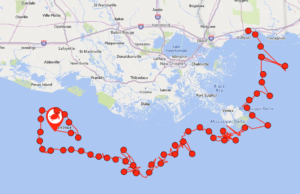
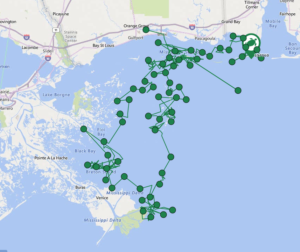
2019-Track of MDMR and IMMS Satellite Tagged Sea Turtles
On Monday, November 25, 2019 MDMR and IMMS released two stranded sea turtles rehabilitated by IMMS back into their natural environment on the beach in Biloxi. Fig Newton, a loggerhead sea turtle (represented by the orange turtle) , and Scar, a Kemp’s ridley sea turtle (represented by the green turtle), can be followed on the map below. On December 28, 2019, Shucker, a Kemp’s ridley sea turtle, was also released (represented by the blue turtle). They all were fitted with satellite tags in a cooperative effort with MDMR to help us better understand the use and suitability of the habitat for these turtles. Each dot represents a satellite transmission.
Fig Newton
Scar
Shucker
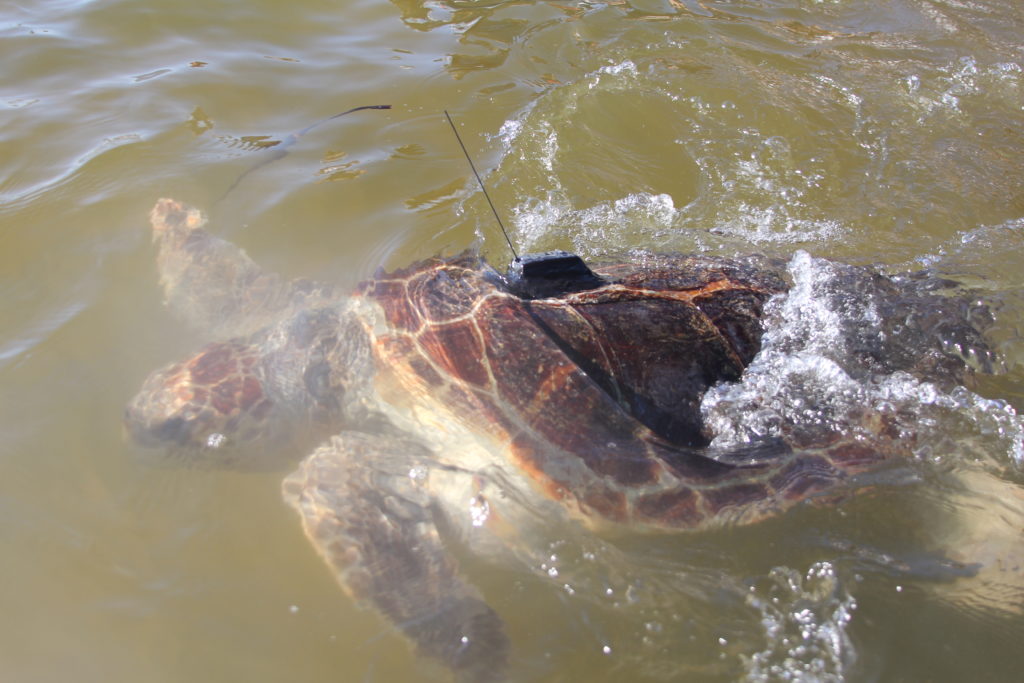
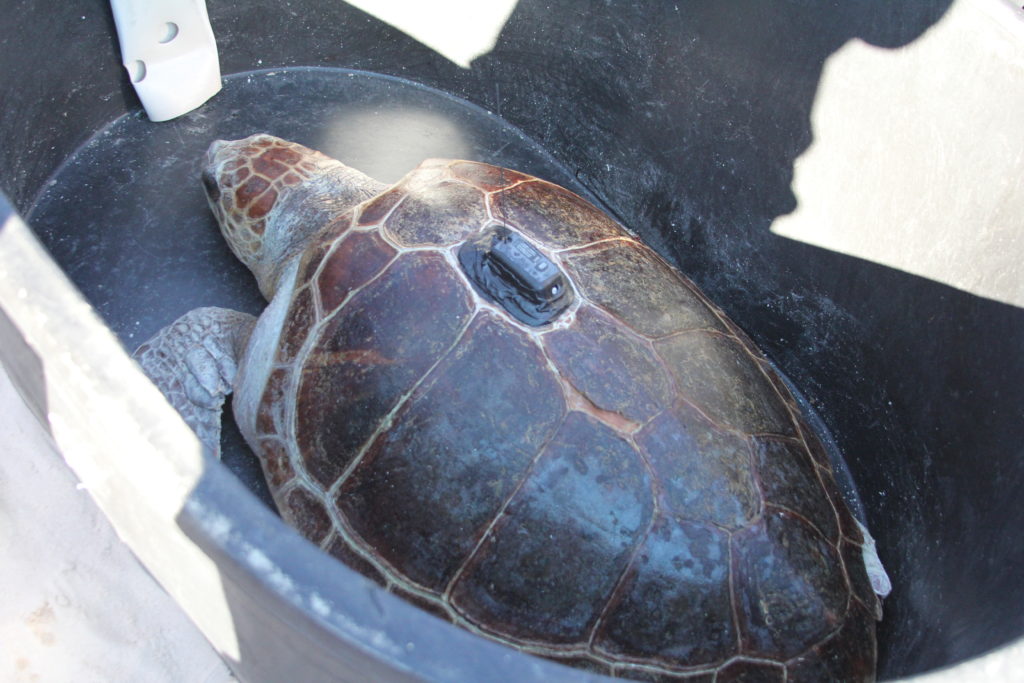
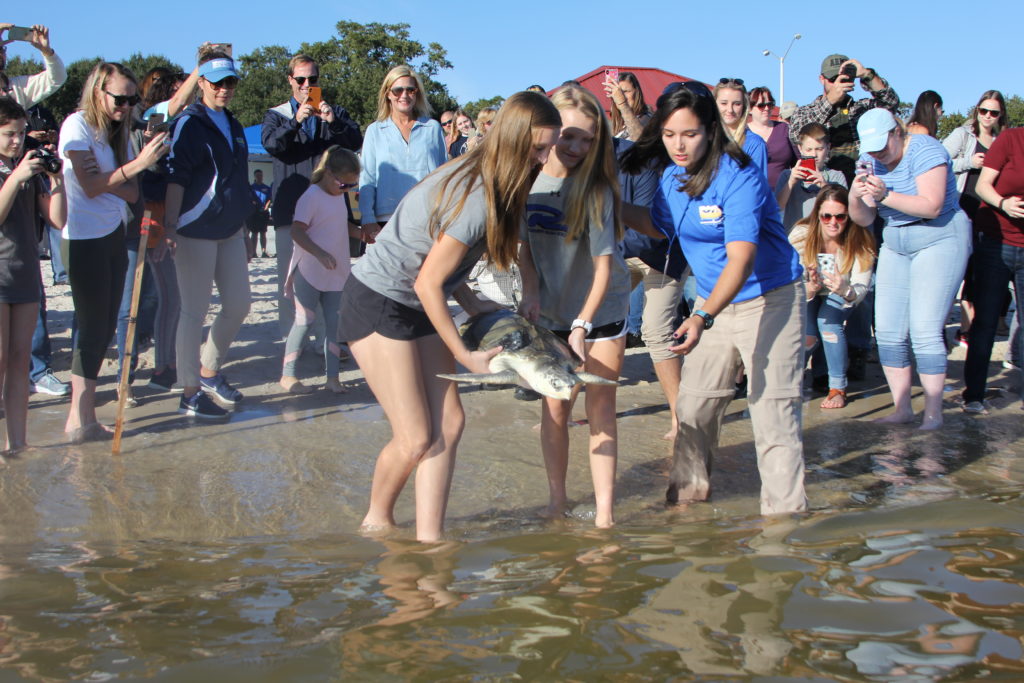
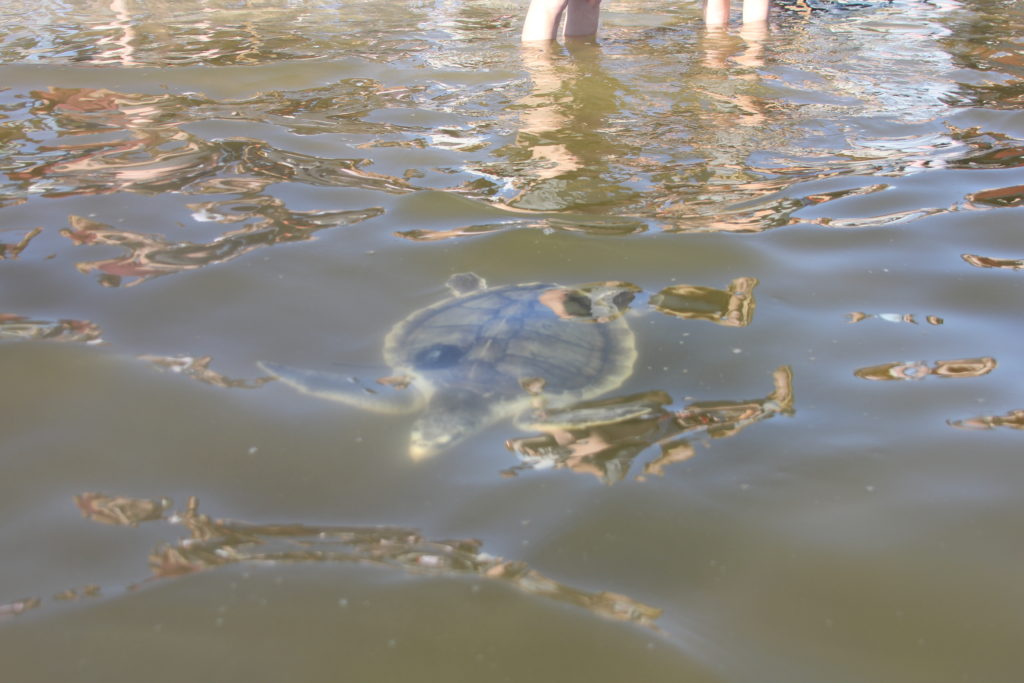
LT19-005 (Fig Newton)
Fig Newton was the fifth turtle that was rescued by IMMS this year. She is a loggerhead which is the second largest sea turtle species. She was found floating near Horn Island by a fisherman and was picked up by IMMS research team on May 27. The animal was lethargic and was very ill as determined by the veterinary medical team from Mississippi State University. She was treated for pneumonia and her shell was treated topically. After recovery from her pneumonia, she was moved to a bigger, deeper pool where she did exceptionally well. Her diet consisted of a variety of items including live crabs, fish, and squid. After a full health assessment by veterinarians it has been determined that she is recovered and ready to be released back into her natural environment!
LT19-022 (Scar)
Scar was the twenty second turtle to be rescued by IMMS this year. It is a Kemp’s Ridley which is the smallest and most critically endangered species of sea turtle in the world. It was caught by a fisherman on a hook and line on September 15 in Waveland, MS. The location of the hook was determined by X-rays, and the hook was removed from the esophagus or throat by making a small surgical incision with local anesthesia by Mississippi State veterinarians. It was given antibiotics to prevent infection in the damaged tissue. A soft diet was given at first, but eventually it was fed his regular diet of blue crab along with a diet advised by the veterinarians. After a complete health check, it was determined that the animal is ready to be released back into his natural environment.
LT18-039 (Shucker)
Shucker, a Kemps Ridley, was caught on a fisherman line and rehabilitated at IMMS. Shucker was released on Saturday December 28th, 2019 approximately 2 miles southwest of of Fort Massachusetts on Ship Island.
Media Coverage
